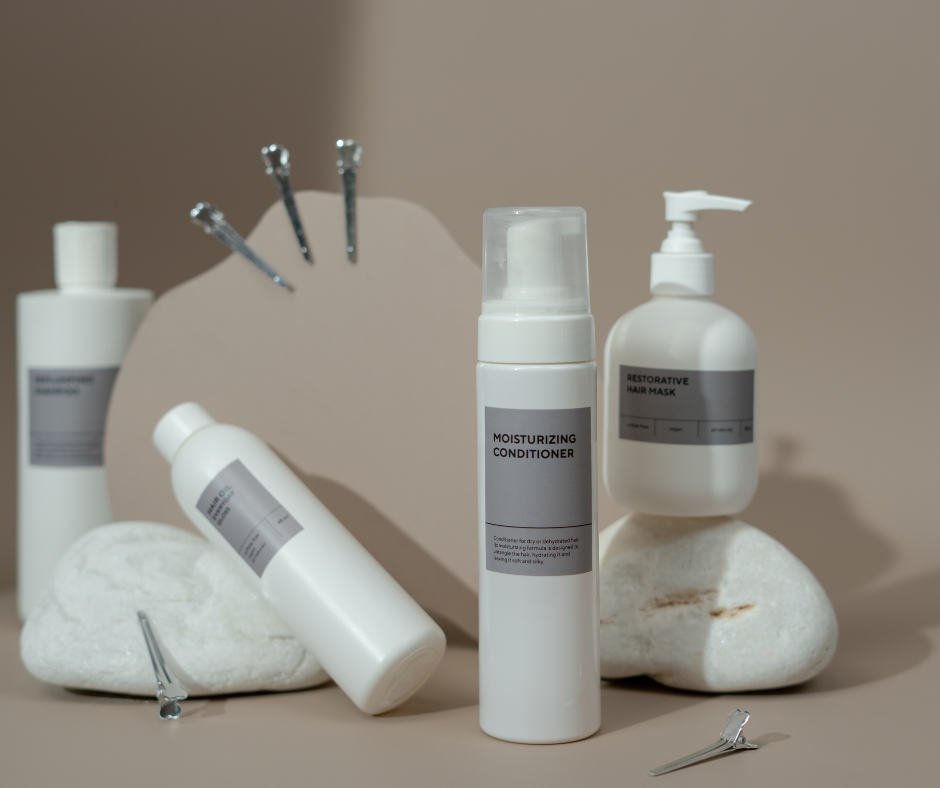We earn a commission for products purchased through some links in this article.Why Trust Us?

What Hair Products Should I Use?
Silky, thick, glossy and head turning hair. We all want it. But what hair products should you use to get it? Is there a way to ensure that our hair receives the right kind or care and attention? Is there one magical routine that works on everyone?
Whether your hair is thick, fine, coarse, wavy, straight or curly there will be products designed specifically for you. There's a huge selection out there and that's great but that can lead to other problems, especially if you are just starting out and trying to find what works best for you. How do you choose? Hopefully, we can give a little guidance to help you along.
If you choose to then it is possible to dive very deeply indeed into the world of hair care products. This article however is designed more for the newbie who wants a firm foundation to build on.
From there the world is your oyster. But definitely try to get the basics right first. The major aspects of hair care are Cleansing, Conditioning, Styling & Protecting and Sealing in Moisture. The process begins with a good cleansing.
Use products that clean your hair and scalp that aren't too aggressive at removing the natural oils that help to nourish and protect your head and scalp. How often you wash your hair is dependent on a few things lifestyle if you are rolling around in muck every day then you probably want to wash your hair every day, how much oil your hair and scalp naturally produce and whether or not your hair is dyed or has undergone intense treatments that damage it. Generally speaking, it is best not to wash it every day.
Every other day should give your hair enough time to recover and to receive some much-needed natural oil with this level of frequency. If, however you have very dry hair from dying it for example then perhaps an even longer break in between would be advisable.
A visual check to see how oily it looks is a great and simple way to determine this.
Step two is the conditioning phase. This is especially important if you are someone who suffers from dry hair either naturally or from treatments. By applying conditioner, you are helping to replace some of the moisture that shampoos can sometimes remove.
It can also help if you have hair that tangles very easily by assisting in smoothing it out and if you have frizzy hair, conditioner can help to settle it down and keep it under control. Something to note, certain climates exacerbate frizzy hair and it is definitely a good idea to be mindful of this if you are a frizz-prone person.
Step three in our list is a more intensive way to seal in moisture. This is known unsurprisingly and 'moisture and seal'. This is best done at night and is perfect for those people who, even after using the appropriate conditioning treatment still find that their hair is on the dry side. The process can be simple.
All you need to do is apply some leave in conditioner and apply some conditioning oil. Note, only apply the oil to the last couple of inches of your hair. Generally speaking, we wouldn't recommend apply it any closer to the scalp.
If you feel as though more than the ends of your hair need the extra treatment but don't want to risk that oily scalp look then why not speak to your hairdresser to get a second opinion.
Step four in our beginner's guide to beautiful hair is styling and protecting. You have done everything right so far, it’s clean, nourished and moisturized and now you want that perfect style.
But is it worth damaging your hair to get the look you want? There's a plethora of products that you can use to get exactly the style and shape that you want but a word of warning. Heat damages hair.
If your style requires the use of extensive blow drying, heated straighteners or a curling device then be sure to use products that protect your hair from this. Do not sacrifice the long-term health of your hair for a short-term hair style goal.
